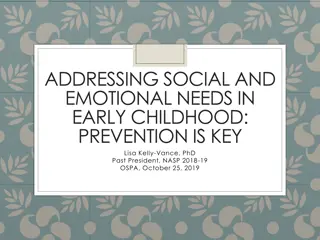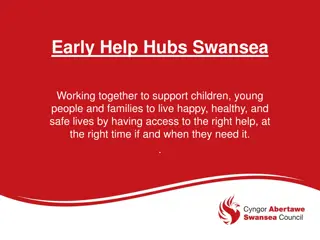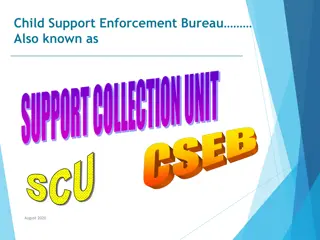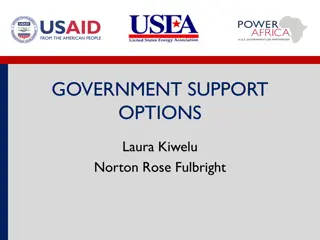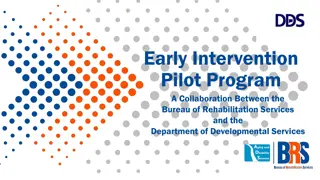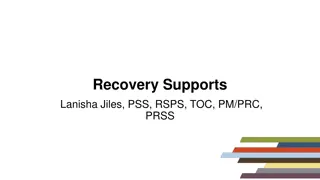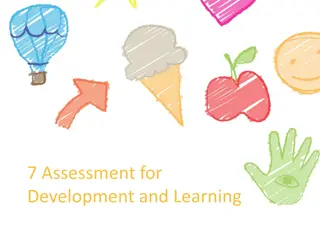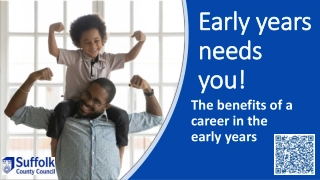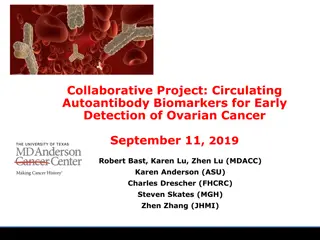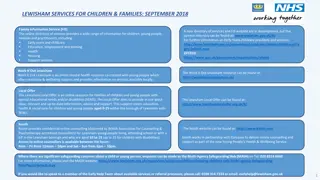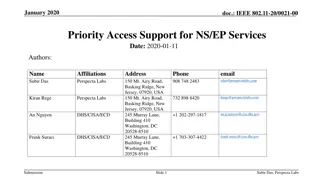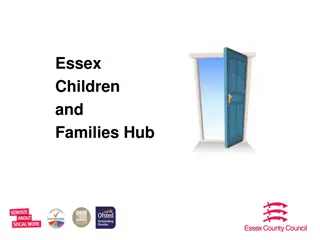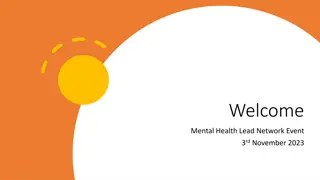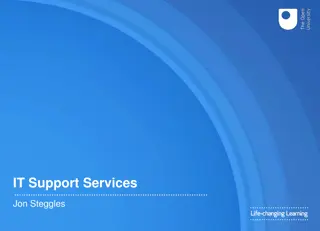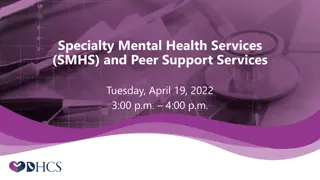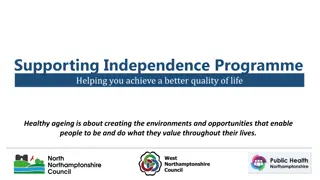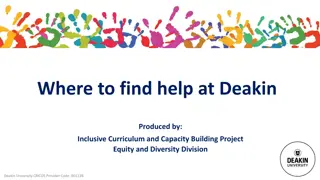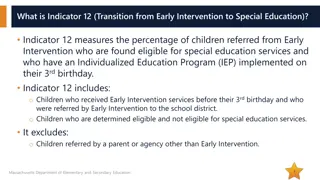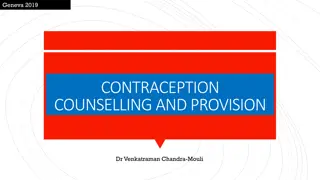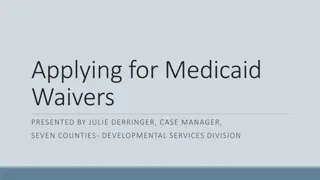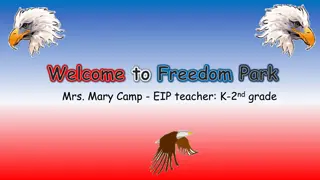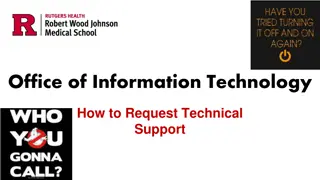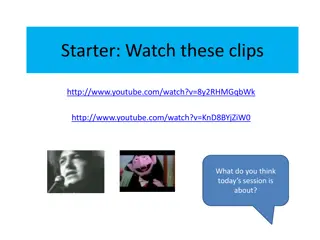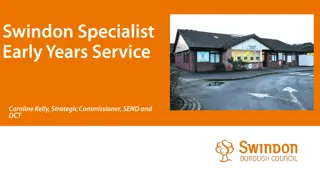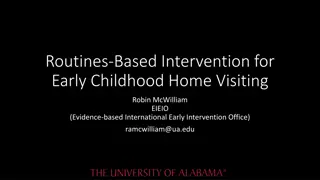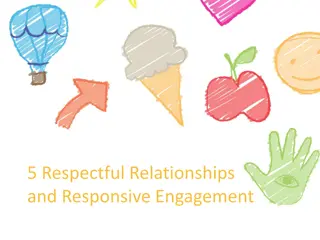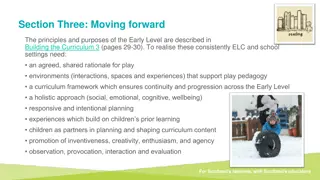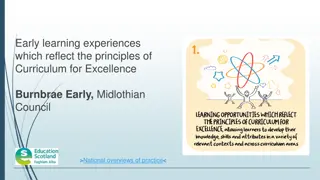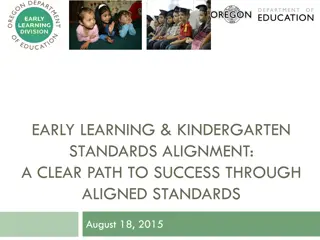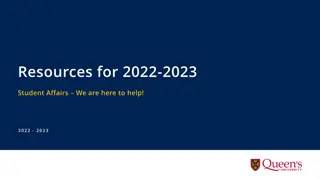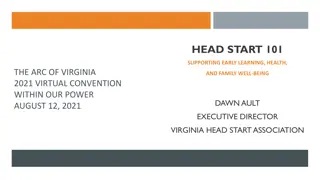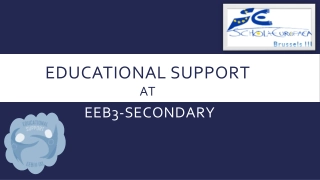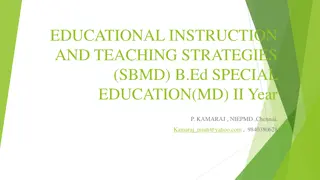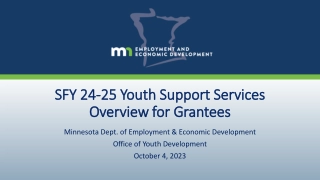Early Help Support Services Overview
Barbara Jean Low, Early Help Coordinator, leads a team that provides support services for children, young people, and families in the Borough. The Early Help program aims to intervene early to prevent issues from escalating, with a focus on emerging needs and good outcomes. The revised approach to levels of need emphasizes timely intervention and tailored support. The Think Family principles guide the work with families at different levels of need, ensuring a holistic and effective response to varying challenges.
Download Presentation

Please find below an Image/Link to download the presentation.
The content on the website is provided AS IS for your information and personal use only. It may not be sold, licensed, or shared on other websites without obtaining consent from the author. Download presentation by click this link. If you encounter any issues during the download, it is possible that the publisher has removed the file from their server.
E N D
Presentation Transcript
INTRODUCTION Barbara Jean Low Early Help Coordinator Early Help Support 1
WHAT IS EARLY HELP Early Help is made up of teams, services and partners in the Borough who work together to support children, young people and their families . Age range for support - 0 to 19 and up to 25 with a disability. The Early Help service works with professionals, parents and carers to intervene early in a child s life and with families that need extra help. 2
AIM OF EARLY HELP To intervene at the earliest opportunity in order to prevent issues escalating to the detriment of the family or child. Early Help may be needed at any point in a child or young person s life. To support children or young people who may have emerging needs (needs not met by Universal Services). 3
LO2: Describe the revised approach to levels of need Right Conversation,Right Action, Right Time What are Emerging needs? Good outcomes Multiple needs Good progress and achievement Low engagement in learning Poor parental engagement or support for learning Good attendance Poor concentration and low motivation Parents do not support punctuality and attendance Positive behaviour Families with multiple needs Behaviour that parents find hard to manage Poor behaviour No barriers to learning Breakdown in family relationships Additional learning needs Family engaged in progress & achievement Family & environmental factors Poor pro-social relationships No access to support for learning at home Good physical health Lack of exercise and poor diet Coming to the notice of Police Good mental health and emotional wellbeing Low self esteem or withdrawn Being bullied in or out of school or setting Age appropriate knowledge about risk Lack of daily routines and structure at home 4
LO3: Outline the Think Family principles that inform work with families Right Conversation,Right Action, Right Time Children and families whose needs can be supported by a single agency Think Family Principles Level 1: Emerging needs Universal Plus Children and families who require a multi-agency response Level 2: Multiple needs Think Family Principles inform our response at every level of need Whole Family Intervention Good Outcomes Children and families who require a statutory or specialist response Level 3: Complex needs Statutory Universal services and the community are involved at every level of need Level 4: Acute needs Statutory / Specialist If you think a child is at risk of harm, contact MASH If you think the risk is immediate, call 999 5
TARGETED SUPPORT Whole family Intervention Early Help Family Practitioner Behaviour, Attendance, Children Missing Education (BACME) Functional Family Therapy (FFT) Youth Offending Service (YOS) Intensive Adolescent Support Team Family Nurse Partnership 6
ASSESSMENT Our Family Journey (OFJ) involves listening to you and your child to find out what your child's needs are and what is working well in your child's life. The family practitioner will agree an action plan with you and your child, to make sure your child gets the right sort of help. 7
CONSENT All support undertaken with Early Help is consent based. 8
SAFEGUARDING Early Help is included within Safeguarding requirements. We ensure problems do not escalate to become more acute to the detriment of children and families, by investing in effective community services and multi-agency coordination. 9
REFERRALS Any professional can refer Parents can self-refer 020 8496 5114 Or send an email to our secure e-mail address: EarlyHelp EarlyHelp@walthamforest.gov.uk All requests for Help & Support or Protection should be sent to MASHrequests@walthamforest.gov.uk MASH: 0208 4962310 10
QUESTIONS ? 11
LO9: support families to access information about services in the local area Right Conversation,Right Action, Right Time 12



